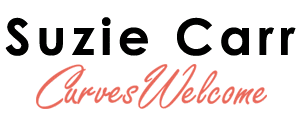
The Secret to Staying Dynamic
Here’s the secret to staying dynamic – be willing to let go and change.
While in the middle of writing my newest novel, Beneath Everything, I was on a live radio show with Bernadette Boas from Shedding the Bitch and we had a great conversation about dealing with life’s curves and staying dynamic (a topic my main character, Sarah, dives into throughout the novel). She wrapped up our fun 45-minute chat with this question: What are 3 tips you can give listeners to help them overcome or deal with life’s curves.
Staying dynamic comes down to really great questions
First of all, I want to say that I loved that question. I loved it because it automatically got my brain searching for answers. I love thought-provoking questions because they have the capacity to nudge a person from a state of helplessness to empowerment in seconds.
Think about those times in life when you’ve felt like the weight of the world decided to take a break on your shoulders. It just plopped all its troubles and obstacles onto you and as a result you felt unable to deal with things.
It’s hard to figure a way out of a tough situation when it’s pressing you down. The mind just sort of parks itself and it starts to feel like no matter how much you try to move, you just can’t. Staying dynamic grows increasingly difficult. It feels better to just sit still and wait for the pressure to subside.
Here’s the problem with sitting idle and waiting on life to change on its own:
The longer you sit in the tracks of that parked position, the harder it is to get out of it.
You can’t sit through life’s problems and think that willing them to go away is going to solve anything. I know that sounds kind of harsh, and I’m sorry if it does. But, if we’re keeping things real here, what I just said is true. Problems are not going to solve themselves by wishing them away or by complaining about them.
You have to take action, and most likely that action will require you to make a change.
Change is a scary thing to most of us.
But, it’s through change that we’re able to get on a better track. A lot of people get stuck because they’re not sure exactly what to change. They know something needs to be different. They just don’t know where to start.
Letting go of what you’ve always known can be extremely uncomfortable. But you know, it’s when you get uncomfortable that you place yourself on the path to improvement.
It’s hard enough to admit when something is no longer working, and possibly even harder to not become overwhelmed by figuring out a plan to get things working again.
Be default, we’re programmed for survival. We’re programmed to set ourselves up for success. No one ends up on a wrong road on purpose. We end up there for many reasons, one sometimes being that we settled into what was easiest and bearable.
If you strive for more than just survival and bearing with life’s situations, and I hope you do, then you need to find a way to get from a point of complacency to a place where you thrive.
What’s the Secret to Staying Dynamic?
That’s where great questions come into play. Great questions like the one the radio show host, Bernadette, asked me at the end of her radio show. Questions that ignite that part of your brain to go into search mode and find answers that will serve you best.
A great question is like getting splashed by a glass of cold water.
It wakes a person up and gets her out of the muck of her past failures and fears and places her into the arms of reality, into the present moment where real life is taking place and waiting for her to get on board.
When Bernadette asked me for 3 tips, my brain went into search mode, creating an instant wave of empowerment that helped remind me of what’s important.
The top three actions that help me to stay in a dynamic state and away from the comfort zone of stagnation are 1. Take deep breaths 2. Learn something new daily and 3. Surround myself with encouraging people who set the example of how to add value to those around them.
So let me back up a moment and break these down further.
Taking a deep breath.
Why is this important? It seems rather simple, right? When was the last time you took a deep, thoughtful breath? Take one right now. Draw it deep into your lungs and hold it there for a few seconds before releasing it. I bet that felt great. Next time you’re stressed or overwhelmed, try taking breaths like this. Breath in, hold it, then release it. Repeat this for two minutes. That one action will change the way you feel in a positive way.
Learn something new daily.
When you learn, your brain gets excited because it forms new connections. By learning you can grow as a person, develop your knowledge base and improve yourself for the better. When this happens you view the world through a different lens. This new lens offers insights and access to new and different opportunities.
Surround yourself with encouraging people.
The people you spend time with have a huge impact on your life. “You are the average of the five people you spend the most time with,” according to motivational speaker Jim Rohn.
Are the people you are spending the most time with people who support you, encourage you, and make you feel energized and happy? I hope you can answer yes to most of these because that means you’re setting yourself up to put forth the same to others. If no, ask yourself where you can find such friends. As already established, your beautiful brain will go into search mode to figure it out for you.
Thriving in life comes down to an important action: asking yourself really great questions. The next time you find yourself in a not so ideal situation, ask yourself what is one thing I can do in this very moment to get my focus off the problem and onto something positive? Trust in yourself that you will find the answer. You’ll be amazed at how creative your brain can be when it comes to helping you not just survive, but thrive in this life.





